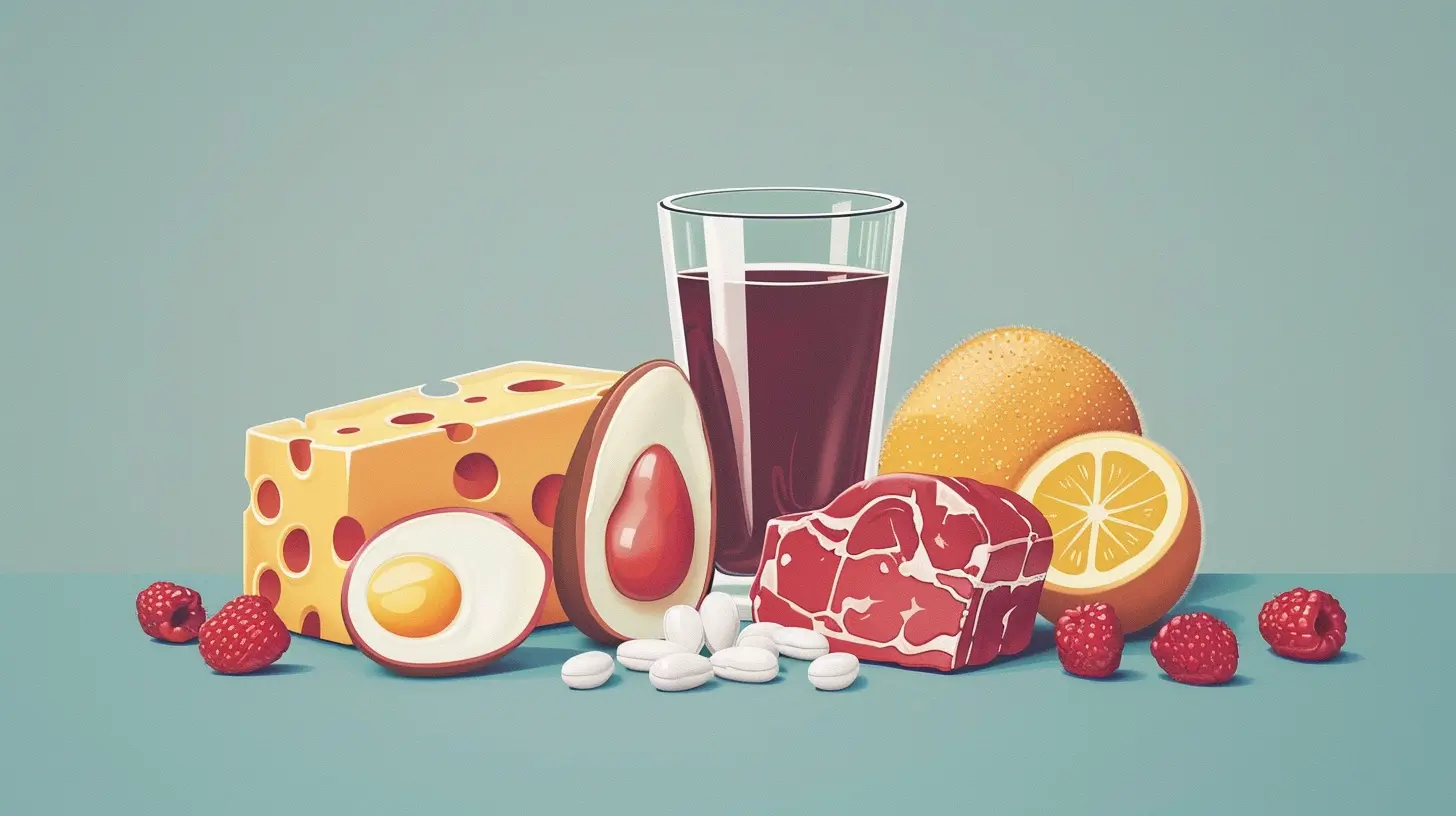How Sleep Quality Affects Your Cholesterol Levels
30 June 2025
We all know sleep is crucial. Without it, we’re cranky, foggy, and probably reaching for that third cup of coffee by 10 a.m. But here’s something you might not have considered: your sleep habits could be messing with your cholesterol levels. Yep, you read that right. The way you sleep may be quietly influencing your heart health in more ways than you think.
So, if you’re tossing and turning through the night or binge-watching Netflix till 3 a.m., it may be time to consider how this could be affecting your cholesterol. Let’s dive into how sleep—good or bad—ties in with those tricky little lipids floating around in your bloodstream.
First Things First: What is Cholesterol, Really?
Before we chat about how sleep impacts cholesterol, let’s clear up the basics.Cholesterol isn’t the villain it’s often made out to be. Your body needs it. It helps build cells, make hormones, and aid digestion. But the problem lies in the balance between the good and the bad.
There are two main types:
- HDL (High-Density Lipoprotein) – The “good” cholesterol. It helps remove excess cholesterol from your bloodstream.
- LDL (Low-Density Lipoprotein) – The “bad” cholesterol. This one builds up in your arteries and can lead to heart disease.
When LDL climbs too high or HDL dips too low, that’s when trouble starts.
Sleep and Cholesterol: What’s the Connection?
You might be wondering—what does catching some Z’s have to do with fat in my blood?The connection is more real than you’d think. Research is increasingly showing that poor sleep quality, inadequate sleep duration, and even sleep disorders like sleep apnea could be raising your LDL and lowering your HDL.
In other words, your midnight scrolling routine might be quietly nudging your cholesterol in the wrong direction.
Let’s break it down.
1. Sleep Duration Matters – Both Too Little and Too Much
We’ve all heard the magic number: 7 to 9 hours per night. But it’s not just about how long you sleep—it's about what happens during those hours.Too Little Sleep
Getting less than 6 hours of sleep regularly? That’s a red flag. Studies have shown that shorter sleep durations are linked to:- Higher LDL cholesterol
- Lower HDL cholesterol
- Increased triglycerides (another type of fat linked to heart disease)
The theory is that insufficient sleep messes with your metabolism and increases insulin resistance, both of which can wreak havoc on your lipid profile.
Too Much Sleep
Surprisingly, oversleeping (say, more than 9 hours every night) might also be bad news. Long sleep durations are sometimes associated with:- Lower HDL levels
- Increased inflammation in the body
It’s a classic case of “too much of a good thing.” Your body likes balance—whether it’s sleep or cholesterol.
2. Interrupted Sleep Can Be Just as Bad
Ever had one of those nights where you keep waking up for no apparent reason? Whether it’s your cat walking on your face or a racing mind that won’t quit, fragmented sleep might be more damaging than you think.Research suggests that poor sleep continuity (basically, sleep full of interruptions) is associated with:
- Higher levels of LDL
- Increased risk of metabolic syndrome
Your body depends on deep, restorative sleep to regulate all sorts of hormones and processes—including the ones that manage cholesterol production and clearance.
So yeah, your sleep quality matters just as much as quantity.
3. Sleep Apnea – A Hidden Culprit Behind High Cholesterol
If you or your partner snores like a freight train, sleep apnea might be involved. This sleep disorder doesn’t just steal your rest—it may also be sabotaging your cholesterol.Sleep apnea is when your breathing repeatedly stops and starts during sleep. Each pause reduces oxygen levels in your blood, triggering stress responses in your body. And guess what? That stress can drive up LDL cholesterol and lower HDL.
In fact, untreated sleep apnea is strongly linked with:
- Higher levels of bad cholesterol
- Elevated triglycerides
- Increased inflammation
Wearing a CPAP machine at night (a common treatment for sleep apnea) has actually been shown to improve cholesterol levels in some people. Pretty wild, right?
4. Hormones and Sleep: It’s All Connected
Now, let’s talk hormones—because they play the middleman between sleep and cholesterol.Cortisol – The Stress Hormone
Poor sleep = more stress = higher cortisol.High cortisol levels can increase appetite and promote the storage of visceral fat, which contributes to poor cholesterol readings. It also increases glucose levels and insulin resistance—both bad news for your heart.
Leptin and Ghrelin – The Hunger Hormones
Not sleeping enough messes with these two as well:- Leptin (which tells you you’re full) goes down
- Ghrelin (which fires up your appetite) goes up
This combo makes you crave fatty, sugary foods—which, in turn, can boost your bad cholesterol and add inches to your waistline.
5. Sleep Deprivation Encourages Poor Lifestyle Choices
Let’s be real—when you’re exhausted, how often do you reach for a salad over a burger?Lack of sleep doesn’t just mess with your body chemically; it also impacts your decision-making. Sleep-deprived people are more likely to:
- Skip workouts
- Eat late at night
- Choose high-fat, high-sugar foods
- Drink more caffeine and alcohol
All of these behaviors can contribute to weight gain and worse cholesterol numbers.
So, sleep isn’t just about rest—it’s about setting the tone for your whole day.
6. Inflammation – The Hidden Link Between Sleep and Cholesterol
Chronic poor sleep increases inflammation in your body—and chronic inflammation is a key player in heart disease. It damages arteries and makes it easier for LDL cholesterol to stick to artery walls and form plaques.So even if your cholesterol numbers aren’t horrible yet, inflammation driven by poor sleep could still be kicking off the early stages of cardiovascular problems. It’s kind of like a silent fire smoldering beneath the surface.
How to Improve Sleep for Better Cholesterol Levels
Okay, so we’ve established that crappy sleep can spike your bad cholesterol. But what can you actually do about it?1. Stick to a Sleep Schedule
Go to bed and wake up at the same time every day—even on weekends. Your internal clock (circadian rhythm) loves consistency.2. Create a Wind-Down Routine
Think of it like putting your brain in airplane mode. Dim the lights. Turn off electronics. Read, journal, stretch. Do whatever helps you mentally unplug.3. Limit Caffeine and Alcohol
Both can interfere with sleep quality. If you must indulge, try to cut off caffeine by mid-afternoon and go easy on evening drinks.4. Move Your Body
Exercise helps you sleep more deeply and more peacefully. Just don’t work out too close to bedtime—it might backfire.5. Make Your Room a Sleep Sanctuary
Dark, cool, quiet. These are the golden rules of a great sleeping environment. Block out light, reduce noise, and invest in a comfy mattress.6. Get Tested for Sleep Disorders
If you’re always exhausted no matter how much you sleep, talk to your doctor. Sleep apnea is more common than people think—and it’s manageable.Final Thoughts: Sleep Is a Pillar of Heart Health
We often think of heart health as a triangle: diet, exercise, and cholesterol. But sleep? That’s the fourth pillar everyone forgets about.Not sleeping well? It’s not just your mood or energy that's suffering—your cholesterol might be silently creeping up too. Thankfully, improving your sleep isn’t rocket science. A few small changes can have a seriously big impact—not just on how you feel, but on how your heart works.
So, while eating your greens and hitting the gym are definitely crucial, don’t underestimate the power of a good night’s sleep. Your heart (and your cholesterol) will thank you.
all images in this post were generated using AI tools
Category:
CholesterolAuthor:

Sophia Wyatt
Discussion
rate this article
1 comments
Zoey McInnes
Sleep quality is often overlooked in discussions about heart health, yet it serves as a crucial pillar. Poor sleep disrupts hormonal balance, leading to increased cholesterol levels. Prioritizing restorative sleep not only fosters physical well-being but also cultivates a deeper connection to our overall health.
July 6, 2025 at 4:36 PM

Sophia Wyatt
Absolutely! Sleep quality plays a vital role in heart health and cholesterol regulation. Prioritizing restorative sleep is essential for maintaining hormonal balance and overall well-being. Thank you for highlighting this important connection!


